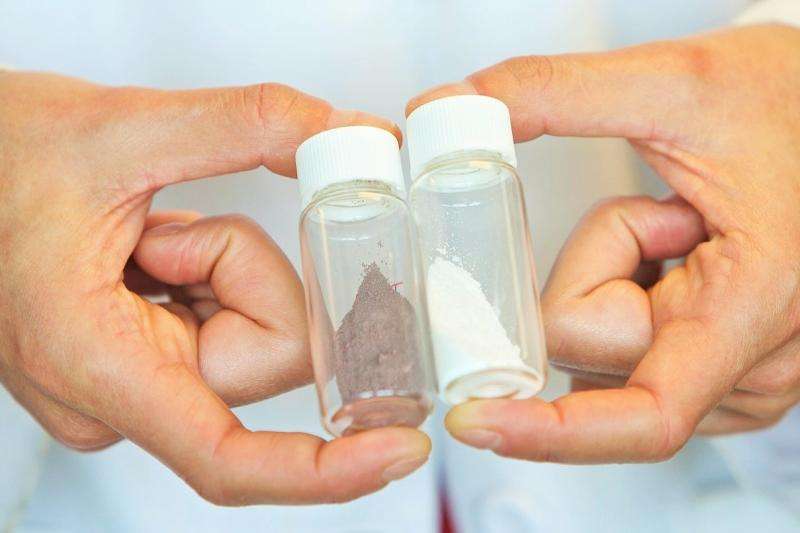New solar-powered organic compound to tackle air and water pollution

Nanoscientists at the Univeristy of Alicante have modified a commonly used compound, titanium dioxide, turning it from white to black to boost its efficiency and making environmental applications a real possibility.
Researcher Elena Serrano at the Universidad de Alicante (University of Alicante, UA) has modified the colour of titanium dioxide from white to black for use as an efficient sterilising agent, removing organic contaminants from air and water.
Cheap to produce and nontoxic, titanium dioxide (known as titania) has many uses. It is used as a pigment to provide whiteness for products including soaps, cosmetics, paints, paper, foods, toothpaste and medicines. It is also widely used as a sunscreen due to its strong UV light-absorbing capabilities.
It is also an excellent photocatalyst, reacting under ultraviolet light to become a sterilising agent. However, since UV light accounts for just 5 percent of solar radiation, white titania is relatively inefficient in this role.
In this study, researchers added a common compound present in hair dyes during the preparation of the titanium dioxide to create "black titania". Since black absorbs a much larger range of the solar spectrum, black titania presents a much more efficient photocatalytic activity in both the UV and visible light ranges.

As such, black titania finds significant uses in water treatment plants and such as pool cleaning. Powered only by sunlight, it is able to break down organic pollutants and purify the water.
It can also be applied to roads, building facades and terraces, where this "black dust" works to remove nitrogen oxide from the atmosphere and improve air quality.
Although similar technologies already exist, "they generally require the use of noble metals like gold, or are the result of very complicated synthesis procedures, both of which are very expensive. Our black titania is much more efficient and cost-effective to produce, needing only water, alcohol and mild temperatures," says Serrano.
Provided by Asociacion RUVID



















